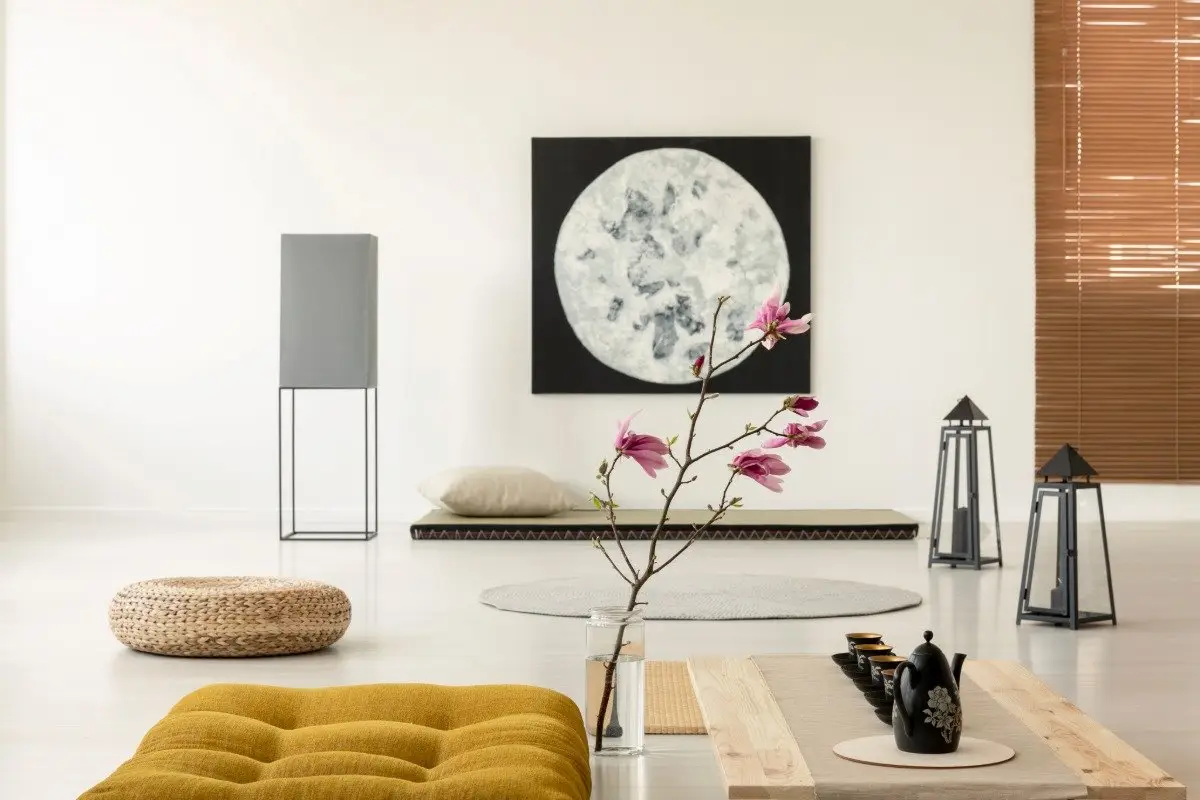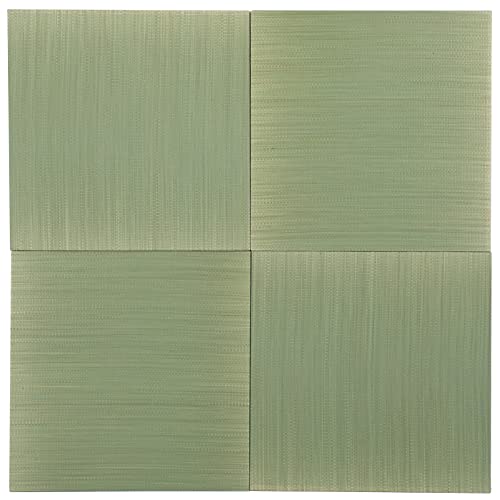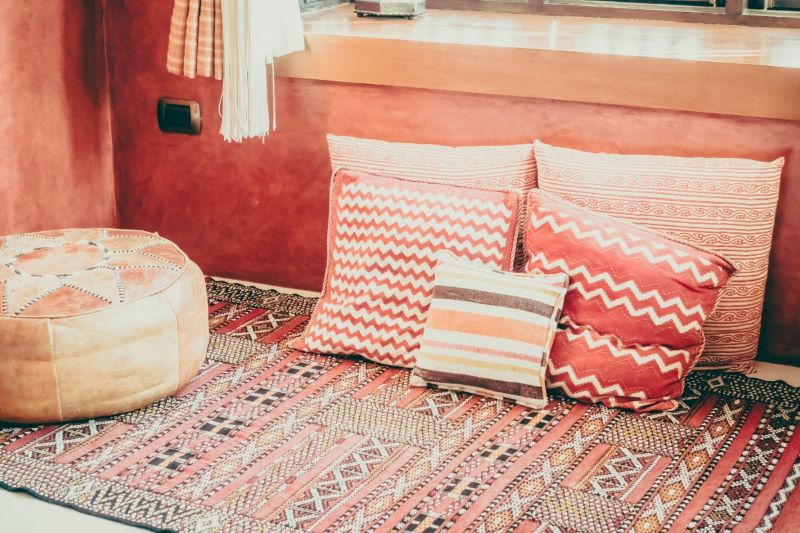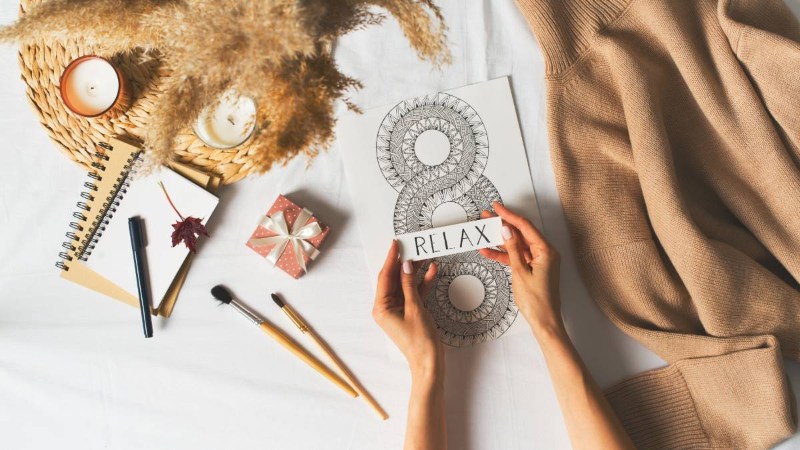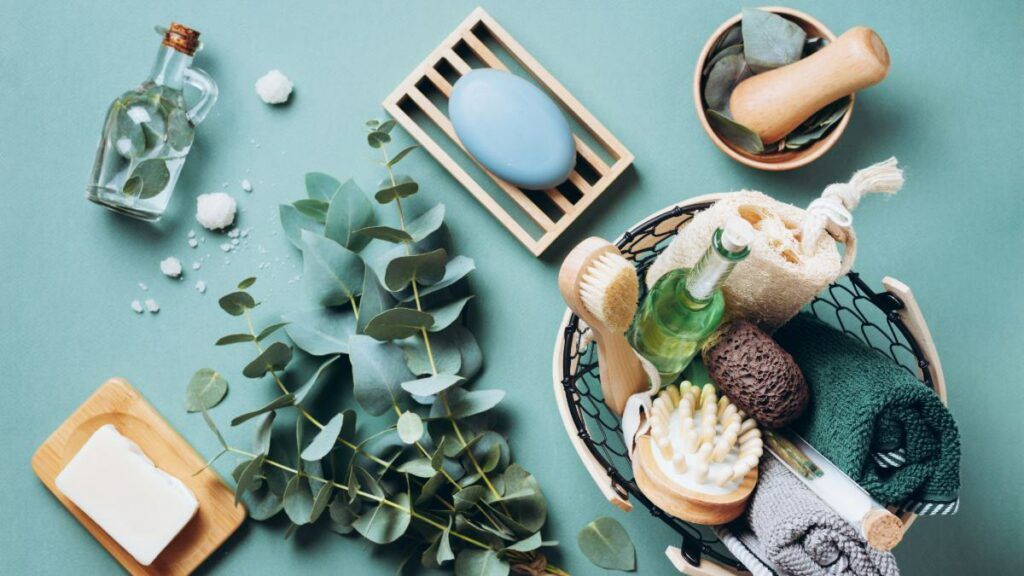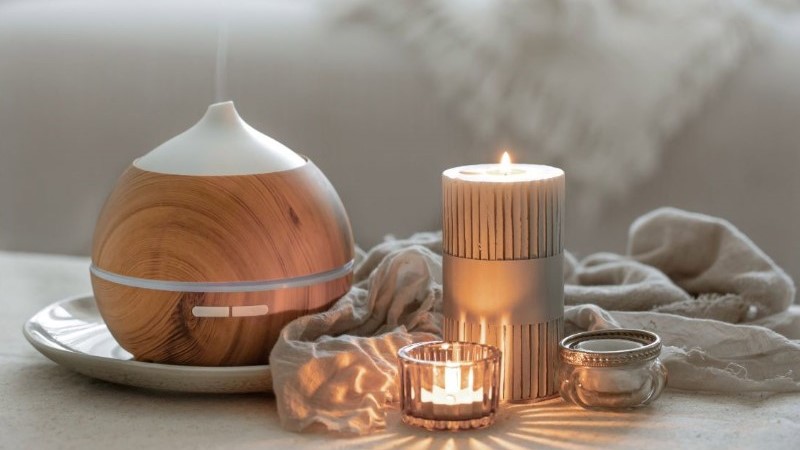Some of the links on this blog may be affiliate links. This means that if you make a purchase through these links, we may earn a small commission at no additional cost to you. We are a participant in the Amazon Services LLC Associates Program, an affiliate advertasing program designed to provide a means for us to earn advertising fees by linking to Amazon.com and affiliate websites.
Have you ever felt overwhelmed by the pressure of perfection? Perfectly styled interiors on Instagram, flawless products in stores, the constant pursuit of perfection that brings fatigue instead of joy.
What if you could take a breather? What if instead of chasing the new, you appreciated what’s marked by time? What if in the crack on your favorite mug, you saw not a flaw, but a story?
This is the Japanese minimalist philosophy of wabi-sabi.
If you love raw and natural materials and things with a history, this guide is for you. We will help you choose 11 wabi-sabi home gifts that create a calming modern Japanese house interior.
Table of Contents
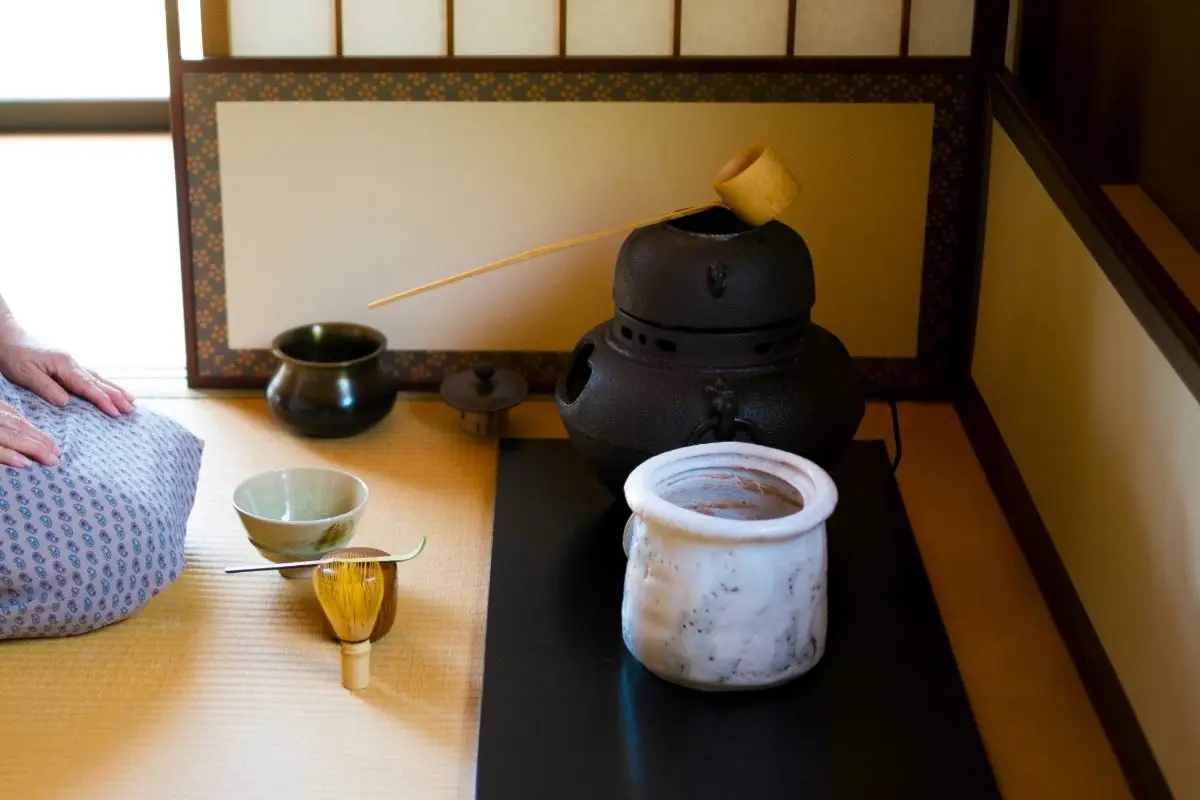
What exactly is wabi-sabi?
In short, it’s the Japanese art of accepting and finding beauty in what is natural, imperfect, and impermanent.
“Wabi” once meant solitude and modesty. Today, it stands for simplicity, modesty and inner harmony. It’s the quiet beauty found in objects that are raw, natural, and unpretentious. Think of a smooth river stone, the uneven texture of a linen tablecloth or the scent of a damp forest. This is the essence of “wabi”.
“Sabi” refers to the beauty that comes with age. It’s sometimes associated with patina, aging, and noble wear. It teaches us that wear and imperfections are not flaws, but evidence of a rich history, of a life lived.
Together, wabi-sabi is a philosophy of accepting the cycle of life and death, a celebration of authenticity, and finding profound beauty in the humble, the impermanent, and the incomplete.
In the practice of home décor, wabi-sabi is:
- Raw, natural materials (clay, wood, linen, stone)
- Sparse forms with a lack of “excessive talk”
- Allowing for scratches, cracks, and discoloration
- A neutral color palette: beiges, ochres, earthy browns, off-whites, muted greens
- The quiet joy of using objects that feel good in your hand and, over time, become yours
Wabi-sabi isn’t perfectly ironed bedding and shiny marble; it’s more like a linen bedspread that creases beautifully, wood with visible grain, a ceramic bowl with an imperfect rim, and anything that “breathes.”
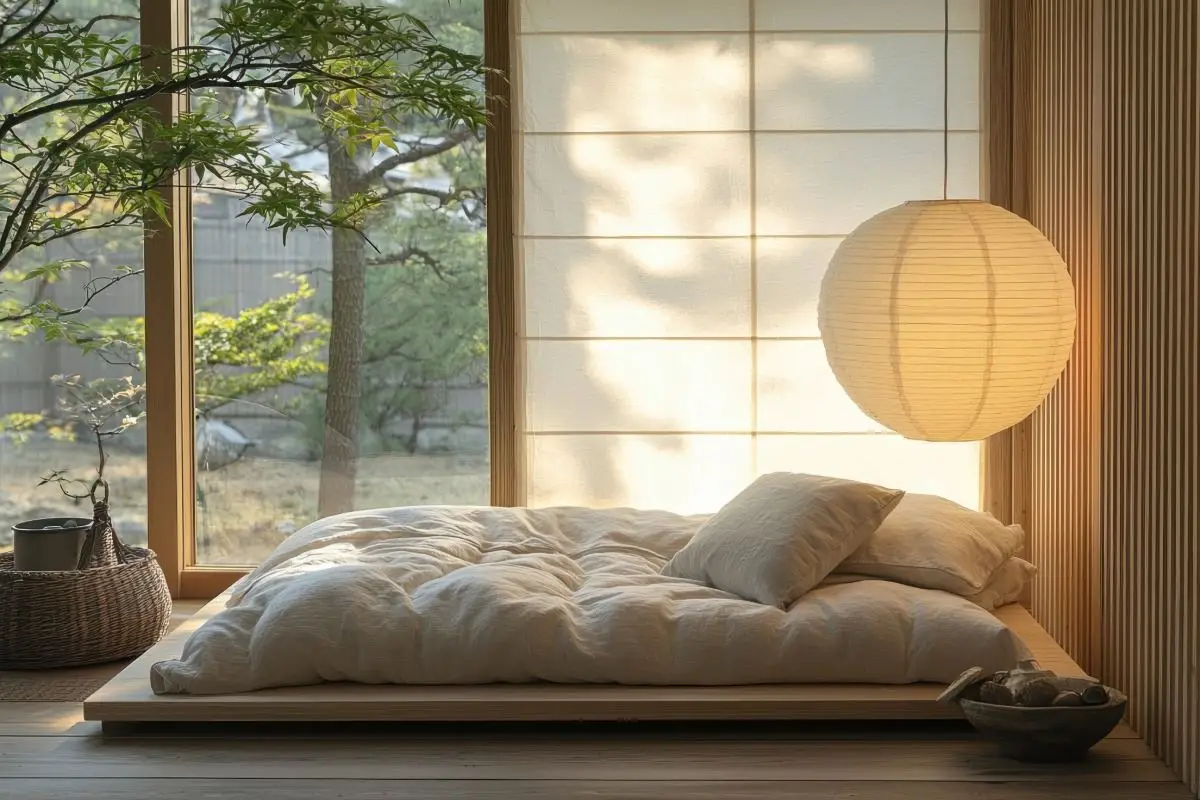
Where Did Wabi-Sabi Originate From?
Wabi-sabi originated in the Japanese tea ceremony as a protest against opulence and excessiveness. Japanese masters began to value simplicity and the modest, uneven ceramics of local artisans over luxurious vessels. Each element of the ritual was meant to reflect harmony with nature, humility, and the beauty of the present moment, demonstrating that true value lies in spiritual experience, not material wealth.
Japanese Wabi-Sabi Is More Than a Trend, It's a Philosophy
These days when our homes often become showcases for perfect Pinterest arrangements, wabi-sabi brings true solace. It’s an invitation to stop striving for an unrealistic ideal. Imperfect beauty in the home means accepting that a wooden table will scratch, a favorite mug may chip, and linen sheets will never be perfectly ironed. And that’s okay.
This philosophy teaches us to surround ourselves with objects that have meaning to us, that are authentic, and that age beautifully. Instead of buying mass-produced decorations, wabi-sabi encourages us to choose things with soul: handmade ceramics, reclaimed furniture, and souvenirs from our travels. The idea is to create a space that is our sanctuary, calm, authentic, and filled with warmth.
Look around your home and your life. Instead of looking for flaws, look for stories. Instead of striving for perfection, appreciate what’s real. It’s there, in this beautiful imperfection, that you will find peace and true happiness.
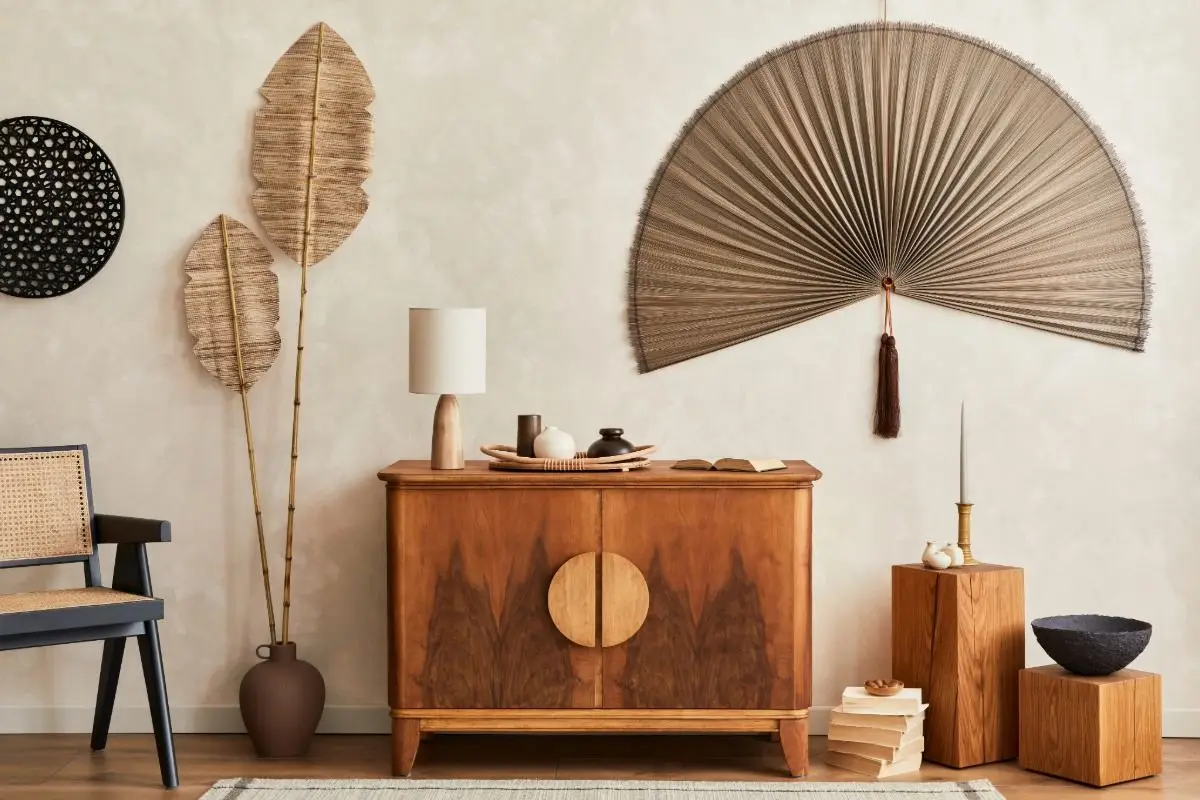
How to choose a gift with wabi-sabi in mind
• Focus on the senses: touch (linen texture, rough clay), sight (matte, muted colors), and smell (herbal and woody aromas).
• Choose smaller, but real things – handmade items, instead of mass-produced trivial gadgets.
• Include a short story or instructions make the gift meaningful and add an element of personal ritual.
11 Wabi-Sabi Gift Ideas for Your Modern Japanese House Interior
Now that we understand the Japanese philosophy of wabi-sabi, let’s get down to specifics. The following list isn’t just a collection of items. It’s 11 invitations to slow down, appreciate the moment, and surround yourself with authentic beauty. These are perfect wabi-sabi gifts for someone who values minimalism, quality, and deeper meaning.
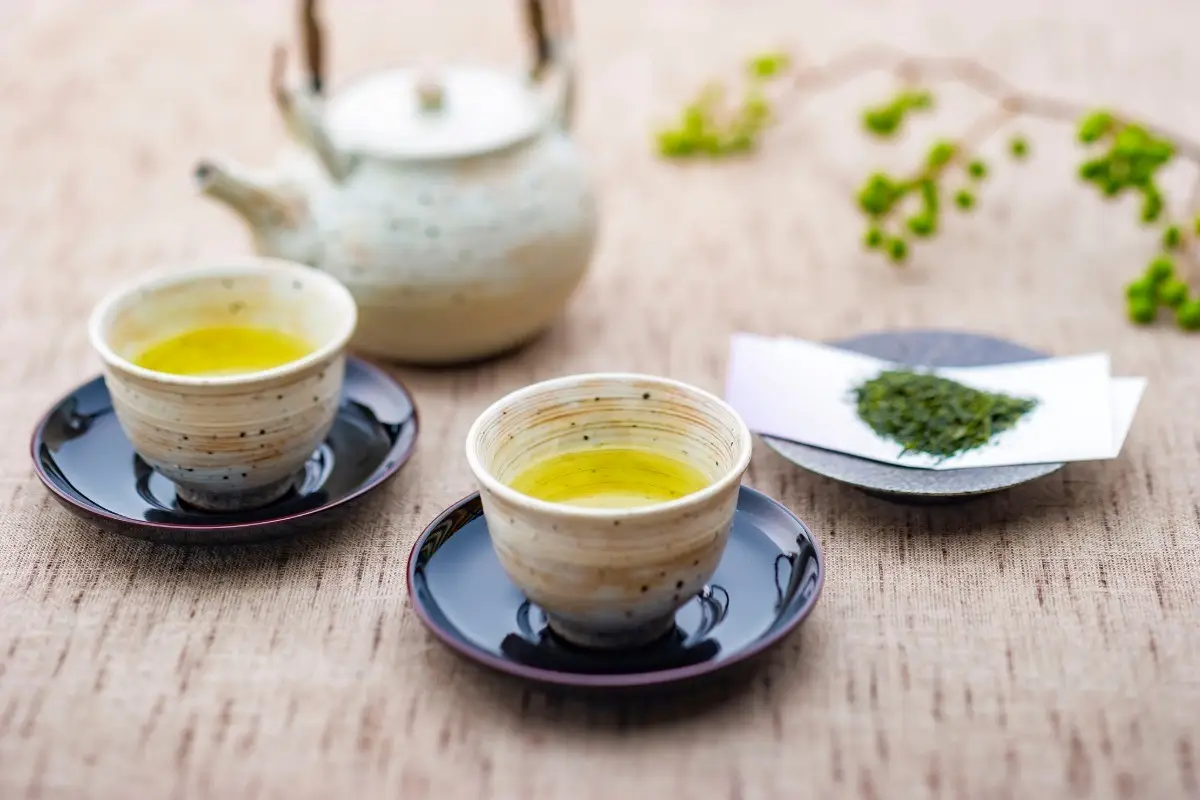
Chawan - a hand-made cup
Chawan, a handmade tea cup, is the quintessence of the wabi-sabi philosophy. Its irregular shape, subtle differences in glazing, and even slightly rough texture are traces of the craftsman’s hand. There are no two identical cups, which makes it a personal and unique treasure.
Drinking from such a cup takes the feeling of a ritual. You feel its weight in your hands, the warmth of the drink permeating the clay, and your thumb traces the uneven surface. It’s a gift that invites you to celebrate your morning tea or coffee as a moment of mindfulness, not just a quick caffeine boost. It’s the perfect minimalist addition to any interior, yet it’s also fully functional.
- Unique handmade ceramic bowl, each piece is one-of-a-kind
- Includes matcha bowl, whisk holder, bamboo whisk and tea scoop
- Made from natural clay and sustainable bamboo materials
- Includes complete four-piece Japanese tea ceremony set for authentic matcha preparation
Linen bedding or tablecloth
Linen is a material that becomes softer and more pleasant to the touch with each wash. Its natural creases are part of its charm. Trying to iron it until it’s perfectly smooth would be contrary to its nature. Linen ages beautifully, and its subtle, natural colors bring peace and harmony to a bedroom or dining room.
Sleeping in linen bedding is pure pleasure, especially in summer. The material breathes and is extremely skin-friendly. A linen tablecloth gives even a simple meal a festive yet casual feel. It’s the perfect Japanese home gift that will allow anyone to find beauty in imperfection.
- Made from 100% pure European flax linen and handcrafted by skilled artisans
- Perfect for everyday dining, holidays, and special occasions
- It gets better and more beautiful over time
- Made from 100% pure linen
- This four-piece set includes a flat sheet, a fitted sheet, and two pillowcases
- Comfortable breathable and skin-friendly
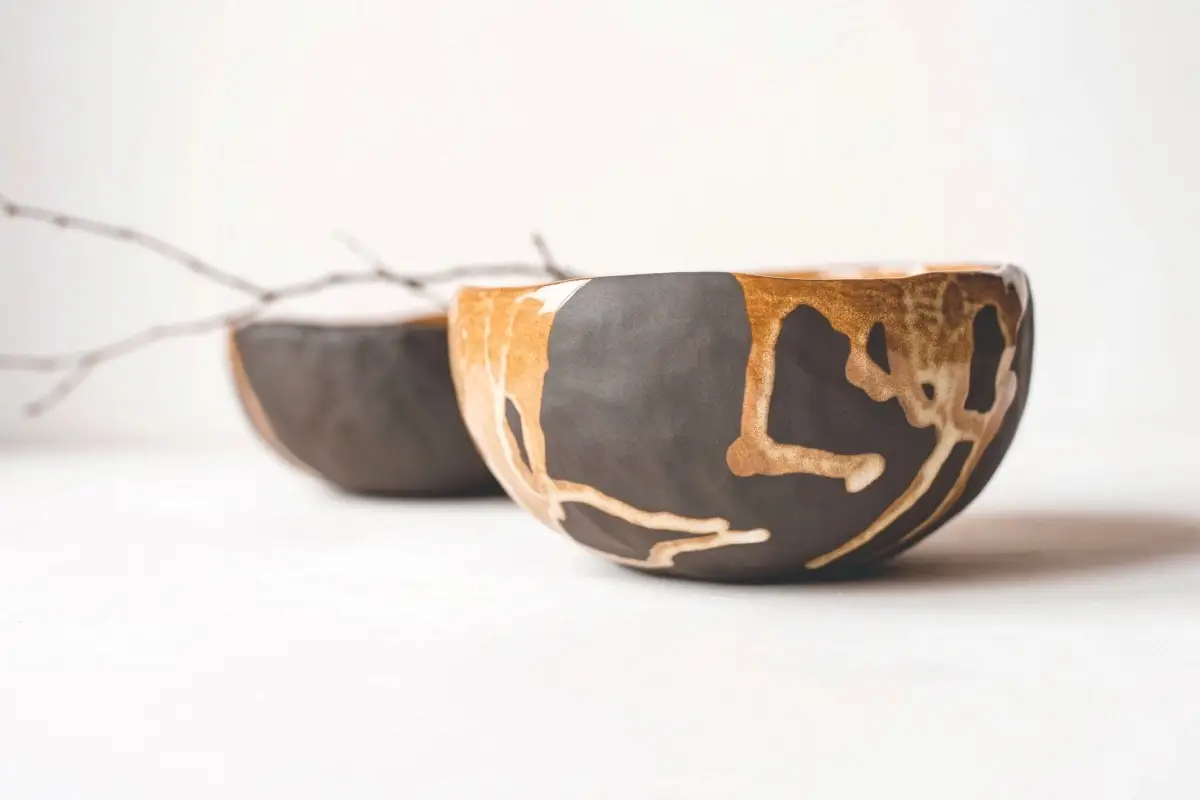
Kintsugi Set
Kintsugi is the Japanese art of repairing broken pottery using lacquer mixed with powdered gold, silver, or platinum. Instead of hiding cracks, Kintsugi highlights them, making the imperfections the most important decorative element. It’s a metaphor for accepting our marks and scars, which make us stronger and more beautiful.
Giving a Kintsugi set as a gift is an invitation to transformation. The recipient can repair their favorite broken mug, bowl, or vase, giving it new life. It’s a creative way to incorporate modern Japanese house interiors.
- Excellent gift for a creative friend or family member
- Includes all necessary essentials to repair fix glass, stone, and even wood
- Encourages people to extend the life of broken and damaged items
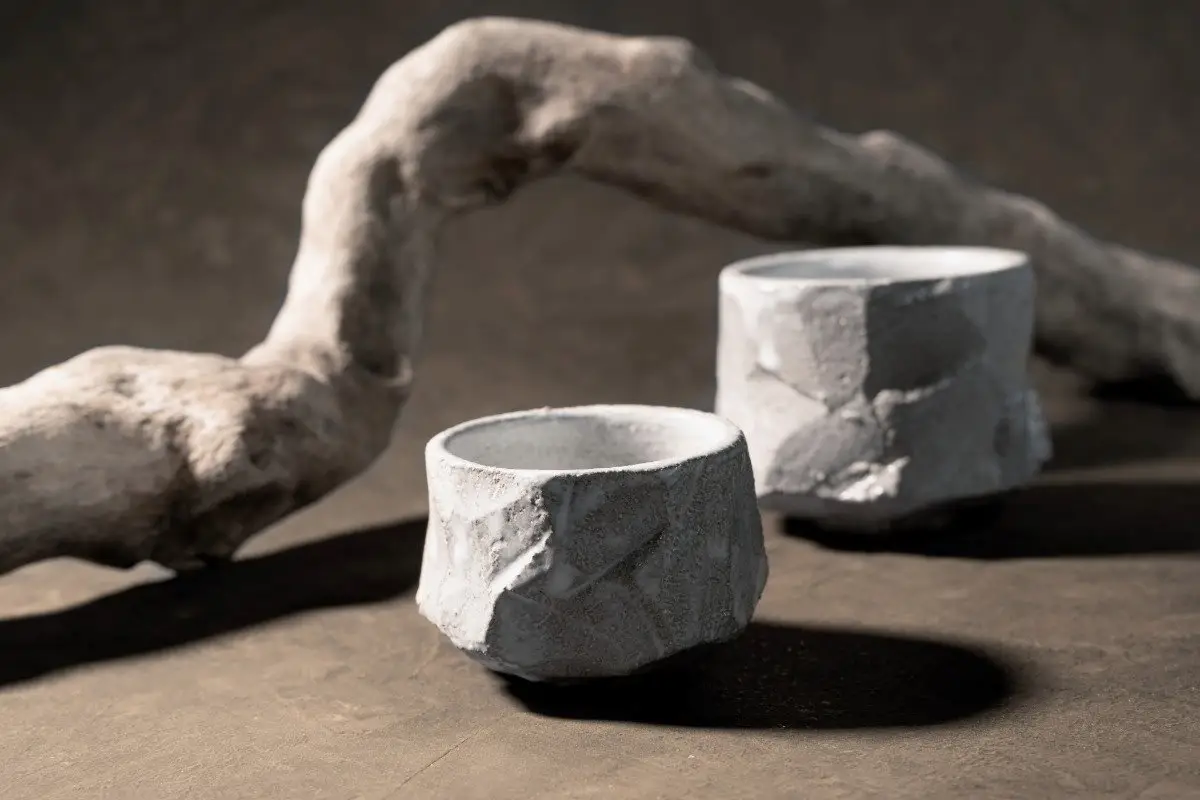
Ceramic vase
A simple glass or ceramic vase is an essential element of any wabi-sabi décor. Unlike lush, baroque bouquets, the wabi-sabi aesthetic values simplicity and open space.
A wabi-sabi vase encourages mindfulness of the nature around us. Instead of purchasing large bouquets, you can bring a single twig, wildflower, or dried leaf from a walk and make it a focal point for contemplation. It’s a beautiful, minimalist interior design accessory that brings a touch of nature and peace into your home.
- Works well for both bouquets and single stems
- Beautiful, simple vase that can be used as a stand-alone decorative piece
- Crafted with a handmade, rustic white ceramic
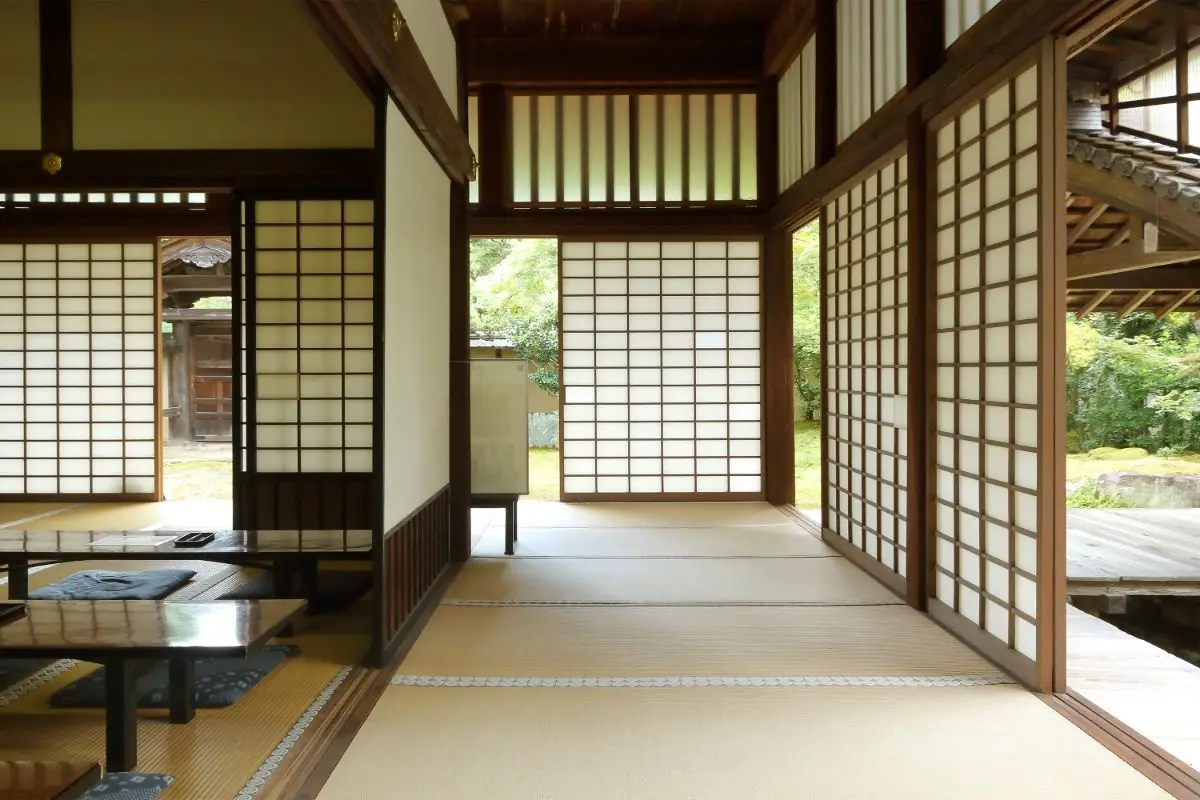
Handmade Paper Notebook with a Raw Cover
This handmade paper notebook, with uneven edges and a subtle texture and a cover made of natural materials (e.g., canvas, recycled leather), is an excellent alternative to regular notebooks. Each page is unique, making writing on it a more conscious act.
This is one of the most practical Japanese home gifts that will be appreciated by anyone who enjoys writing, drawing, or journaling. Contact with natural, imperfect paper inspires and frees one from the pressure of creating something perfect. It provides a space for free thoughts, sketches, and dreams.
- Set includes 30 unique, handmade sheets with different designs
- You can use the paper for decorating journals, cards, and more
- Morandi colors will give the crafts an elegant and vintage look
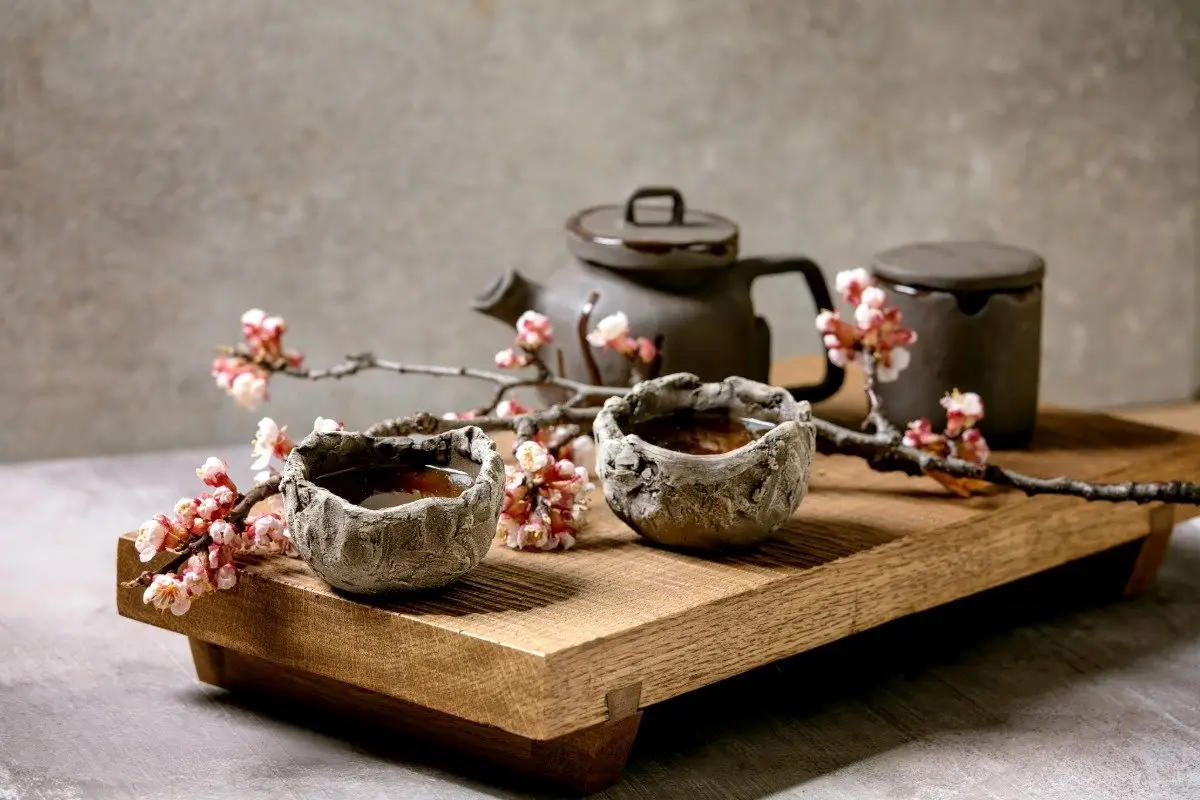
A book about Japanese aesthetics or Zen philosophy
Sometimes the best gift is inspiration and knowledge. Books like Junichirō Tanizaki’s “In Praise of Shadows” or Leonard Koren’s “Wabi-Sabi for Artists, Designers, Poets, and Philosophers” are a beautiful introduction to the world of Japanese aesthetics of simplicity.
It’s a gift that lasts a lifetime. It offers a deeper understanding of the philosophy behind objects and inspires the application of its principles, not only at home but also in everyday life. It’s a gift for those curious about the world and those seeking deeper meaning.
- The first book that introduced the concept of wabi-sabi to the West
- Concise and features a simple, clear writing style
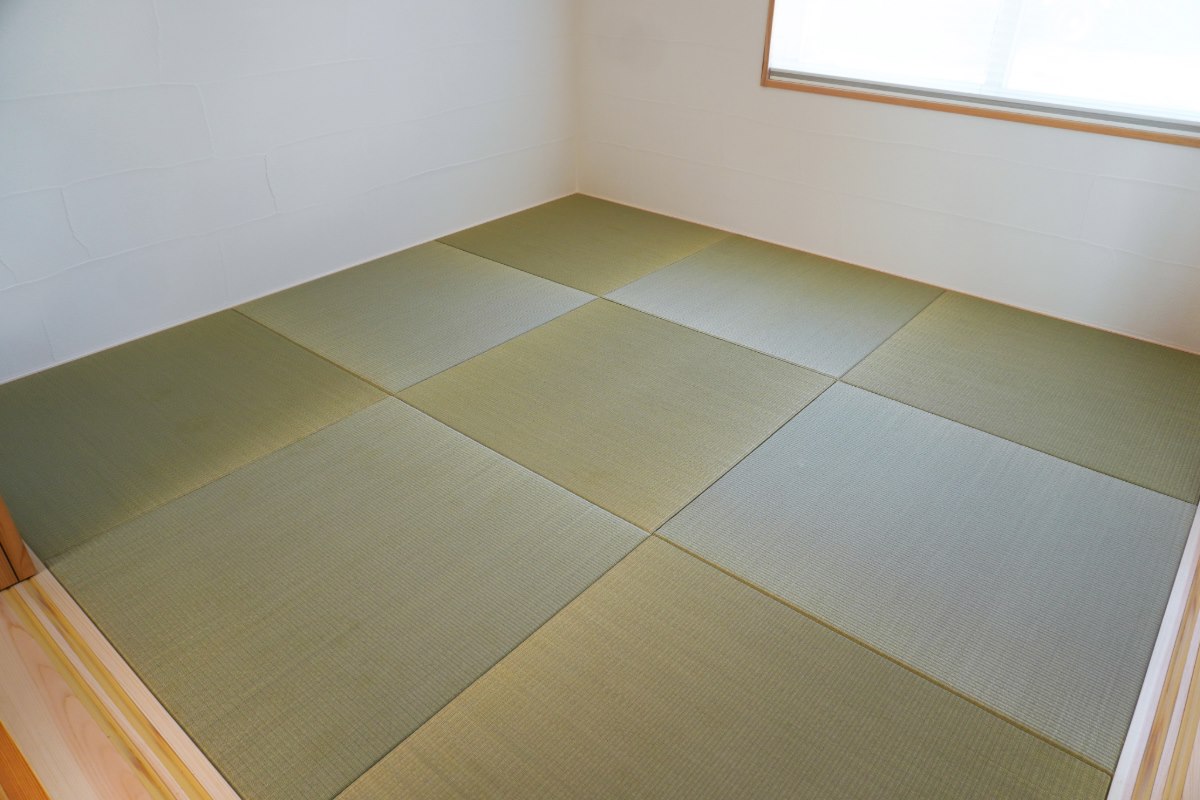
Tatami or Meditation Mat: Your Personal Island of Peace
A classic tatami mat can transform your favorite corner of your modern Japanese house interior into a quiet, mindful nook. Made of natural fibers (igusa bulrush, rice straw, or cotton), its supple, warm texture soothes the senses and invites meditation, gentle yoga, or morning breathing rituals. It introduces neutral tones and a subtle, unobtrusive texture into any interior which is the essence of wabi-sabi. It is a Japanese home decor gift that offers something invaluable: permission to pause and a physical space where you can rediscover yourself, every day.
It’s a Japanese home decor gift that offers something invaluable: permission to pause and a physical space where you can rediscover yourself every day.
- Made from 100% rush grass and is handcrafted
- Thin and lightweight making it easy to carry and store
- Mattress brings a traditional Japanese look and a natural scent to you home
Rice Paper Lamp (Andon): A Light That Envelops in Silence
Japanese aesthetics value the “praise of shadow” (in’ei raisan). The rice paper lamp is the perfect embodiment of this. It does not emit harsh, direct light that eliminates shadows. Instead, it filters light through the thin, natural barrier of the paper, creating a soft, diffused glow. This light, which doesn’t reveal everything but rather suggests, creates the ambiance typical of a modern Japanese house interior.
This light is ideal for quiet conversation, reading a book, or simply being in silence. Giving this lamp as a gift is more than just giving an object. It’s giving the gift of atmosphere. It’s a gift that can transform an ordinary room into a temple of peace and intimacy every night.
- Made with tear-proof paper and a bamboo frame
- Emits a warm white light that is perfect for setting a relaxed mood
- Recharges via a USB-C port in just two to three hours and the full charge lasts up to six hours
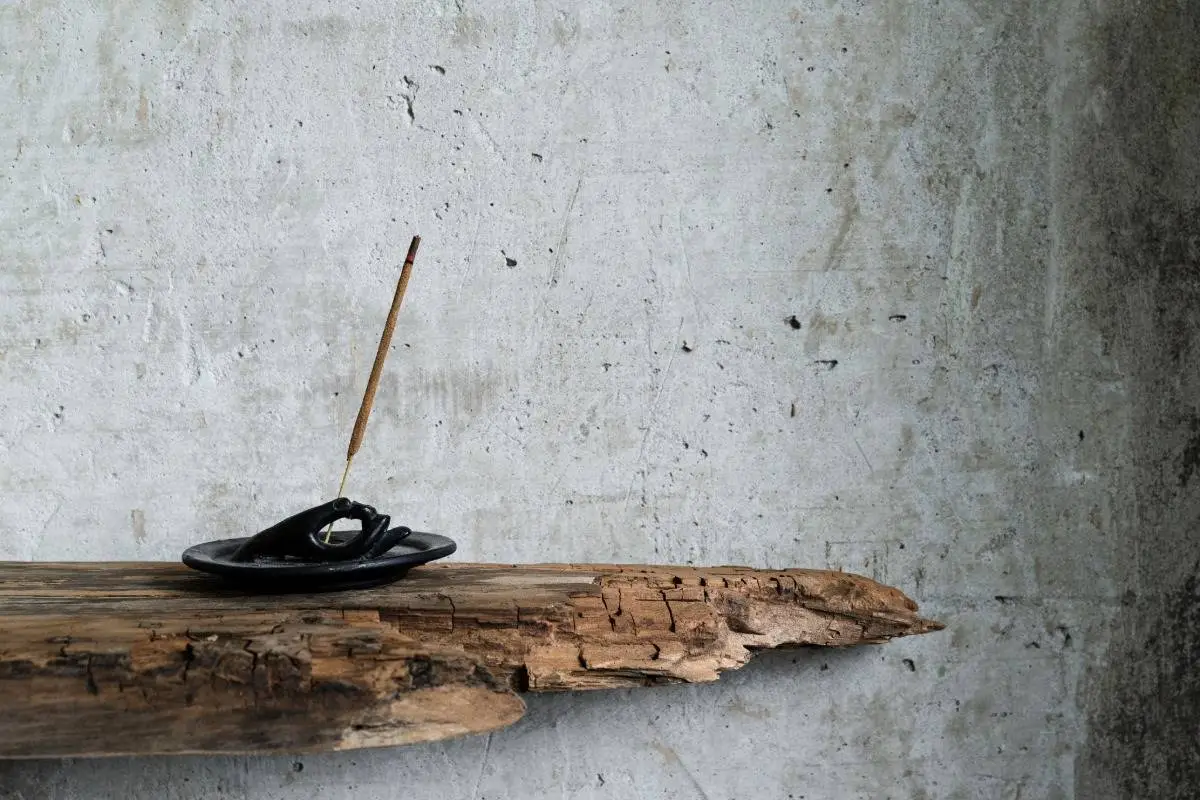
Incense and a Minimalist Stand: A Ritual of Emanating Peace
In the wabi-sabi aesthetic, the senses play a key role, and scent is one of the most powerful tools for creating a mood. Unlike artificial, intrusive air fresheners, natural incense is subtle and ephemeral. All that is needed is a minimalist stand, a piece of raw ceramic, a simple stone with a recess, or a polished piece of wood.
This is a perfect housewarming gift that will help to create a modern Japanese house interior. It teaches how with one small gesture you can transform the energy of an entire room and find space for a deep breath.
- Combines cinnamon and amber with notes of star anise, camphor, and borneol for a distinct, complex aroma
- Beautifully decorated box makes it a great gift
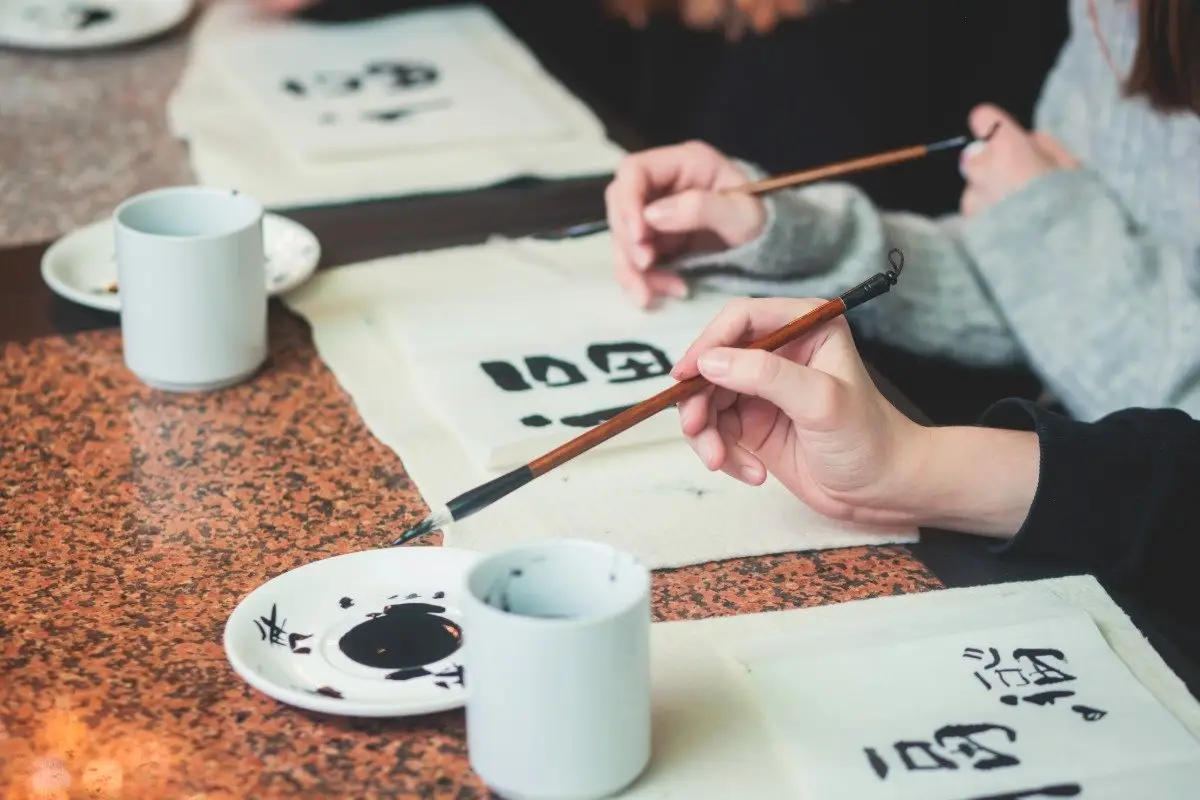
Craft Workshops
Wabi-sabi is not just about having, but also about creating. Giving someone the experience of working with their hands, getting dirty with clay, and creating something imperfect is invaluable. It teaches them to accept the process, not just strive for a perfect end result.
Participating in a workshop is a break from the digital world and a reconnection with the physical world. It’s a meditative experience that teaches patience and allows us to discover the joy of creating something authentic and unique. It’s the perfect gift for someone seeking creative expression and new experiences.
- Includes 15 premium features like cherry blossom trees, a pagoda, and rocks - all designed for a complete and elegant look
- Set provides six handcrafted rakes and tools, allowing you to create different patterns in the sand
- Kit comes with a guide that explains the history and meaning of each item
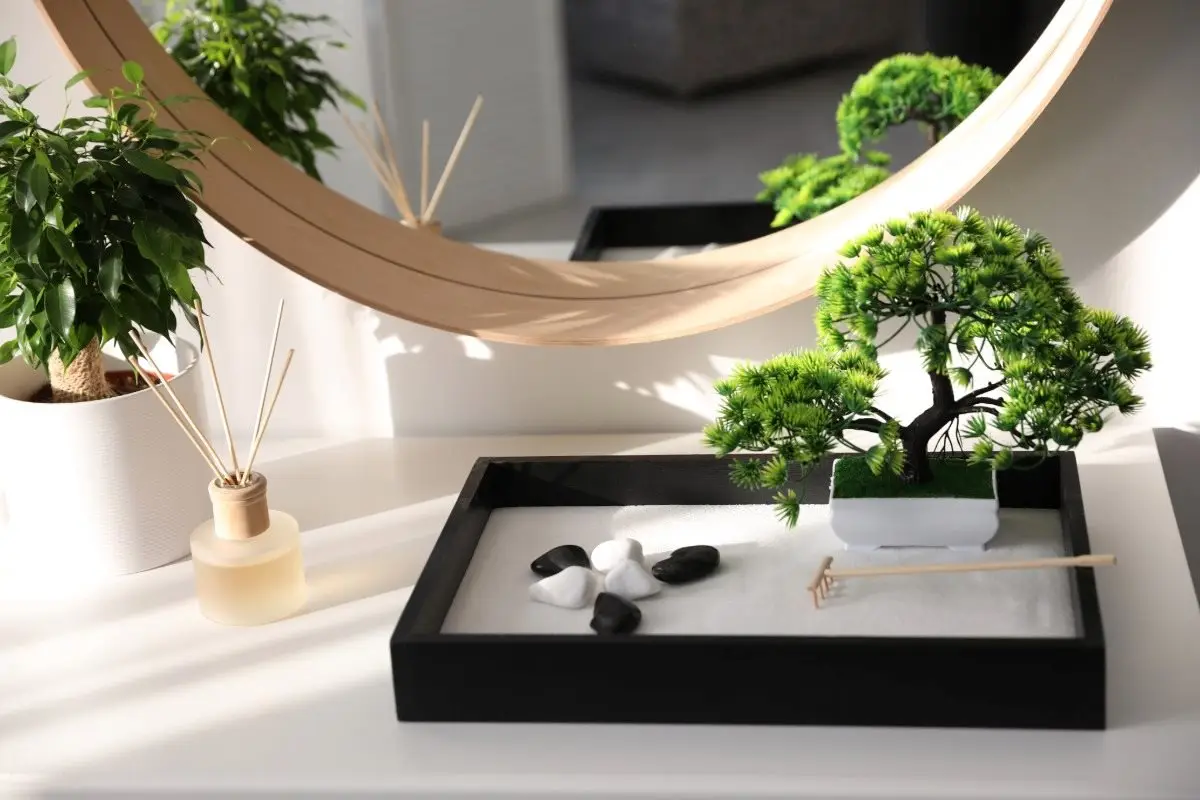
Four Core Principles to Create Your Modern Japanese Home
• Hand-made raku bowls are sometimes intentionally cracked and irregular because touching them gives us a sense of the human labor that went into creating them.
• Kintsugi, or repairing cracked vessels with lacquer and gold dust, doesn’t hide the cracks; on the contrary, it creates “scars” that give the object a new life and meaning.
• The aesthetics of light and shadow: Japanese interiors often celebrate twilight and subtlety. If you enjoy reading, we recommend Jun’ichirō Tanizaki’s “In Praise of Shadows.”
• In the modern world, wabi-sabi is sometimes confused with high-gloss minimalism. What’s the difference between the two? Wabi-Sabi is soft, tactile, and accepting natural imperfections, compared to the sterile perfection of minimalist home decorations and interior design.

